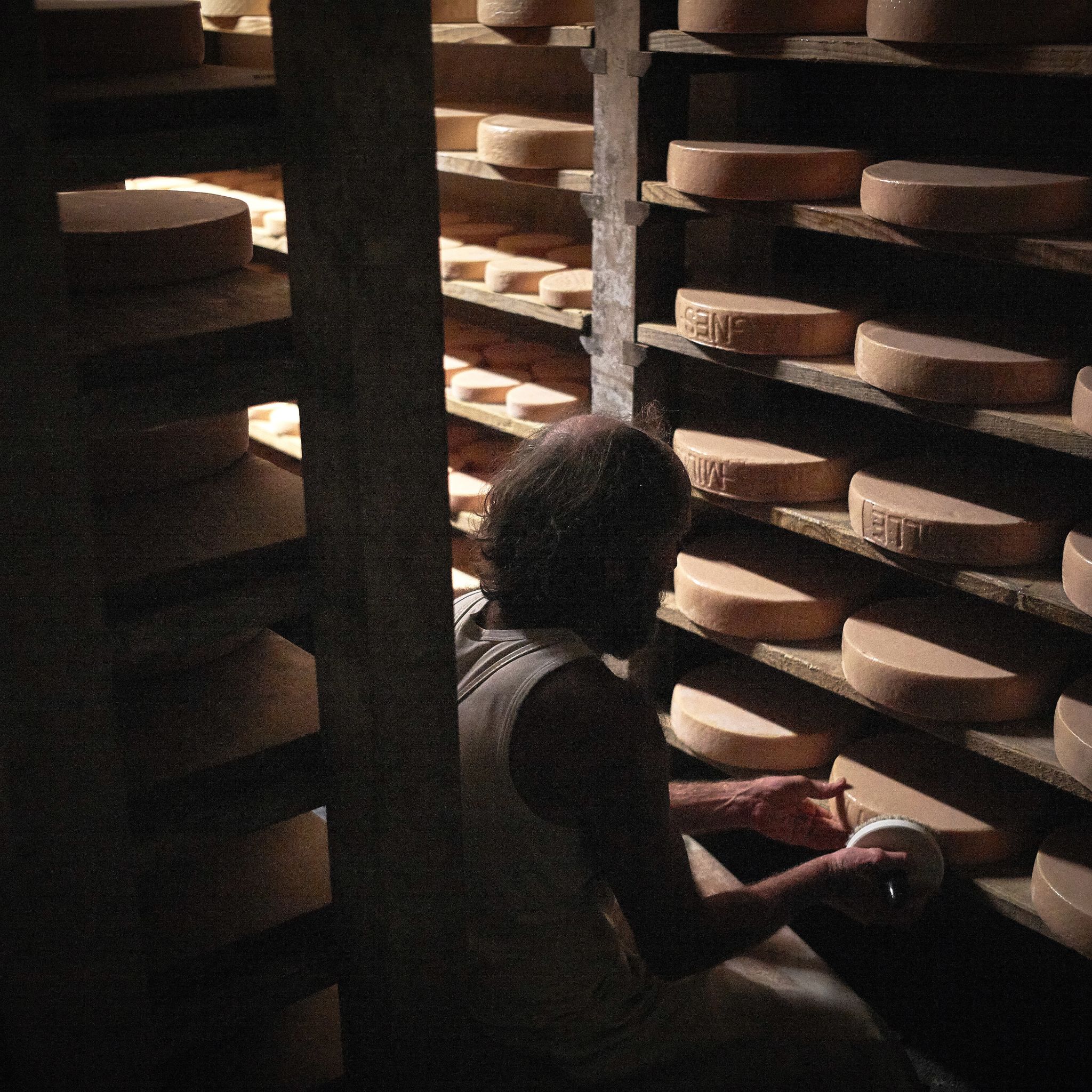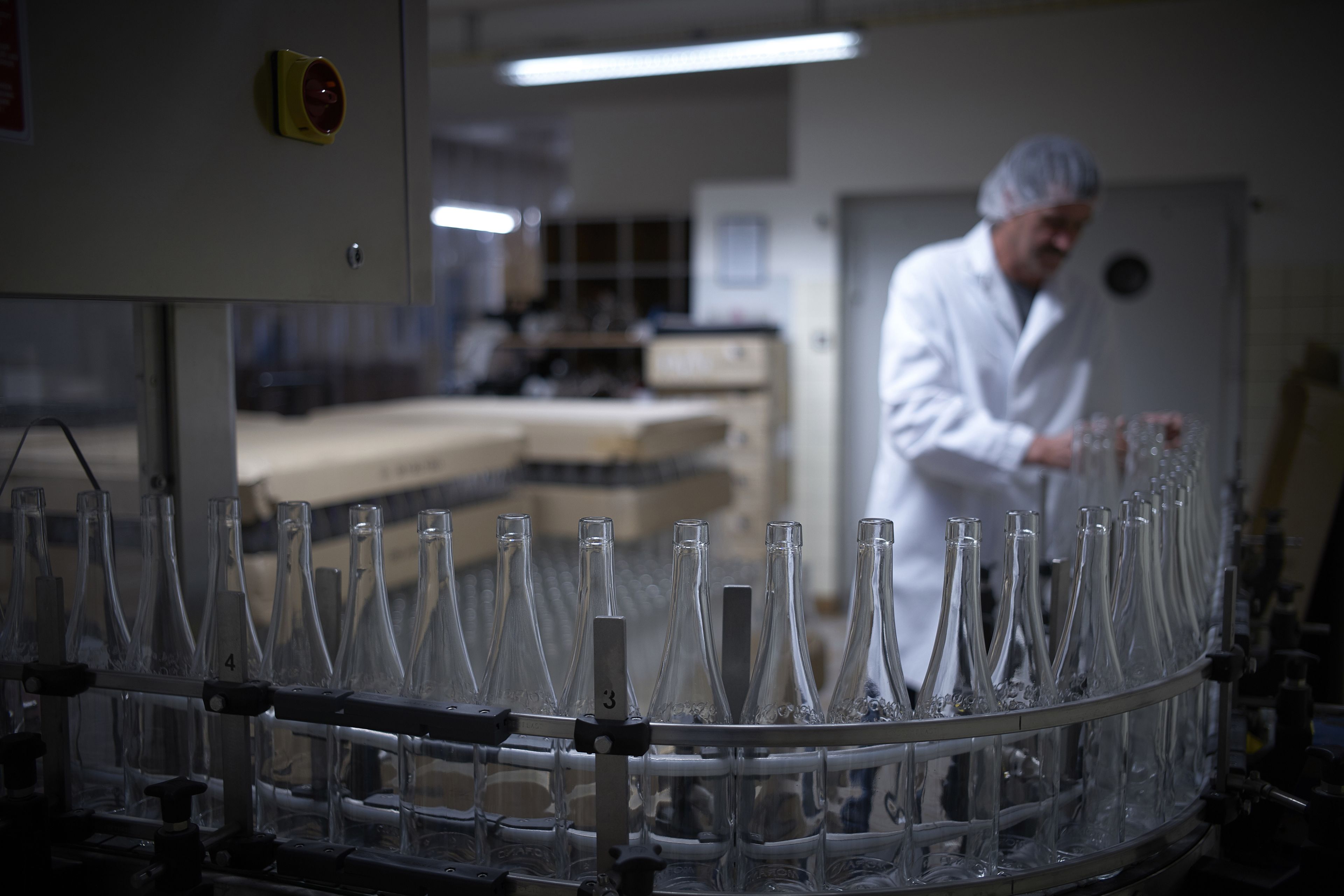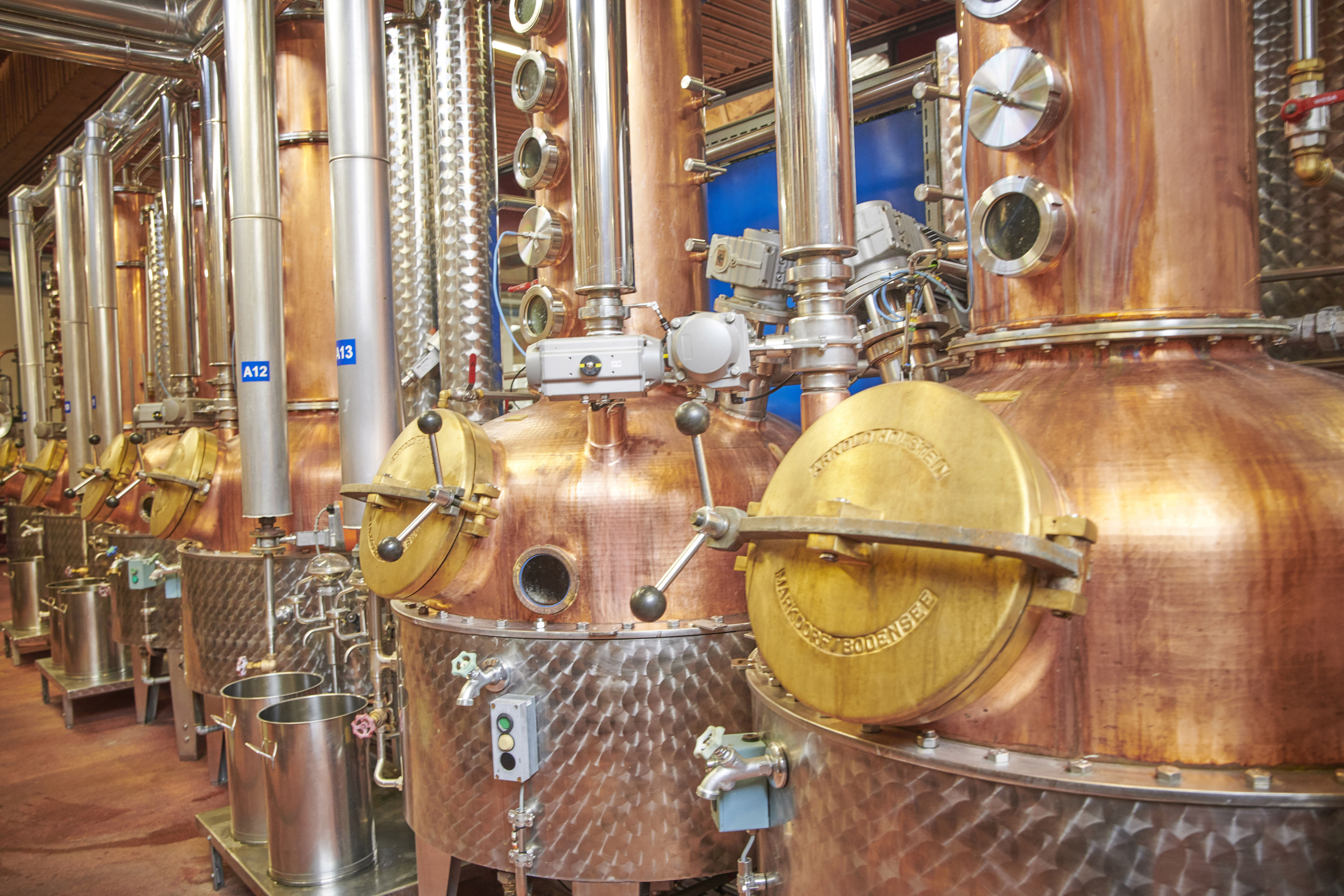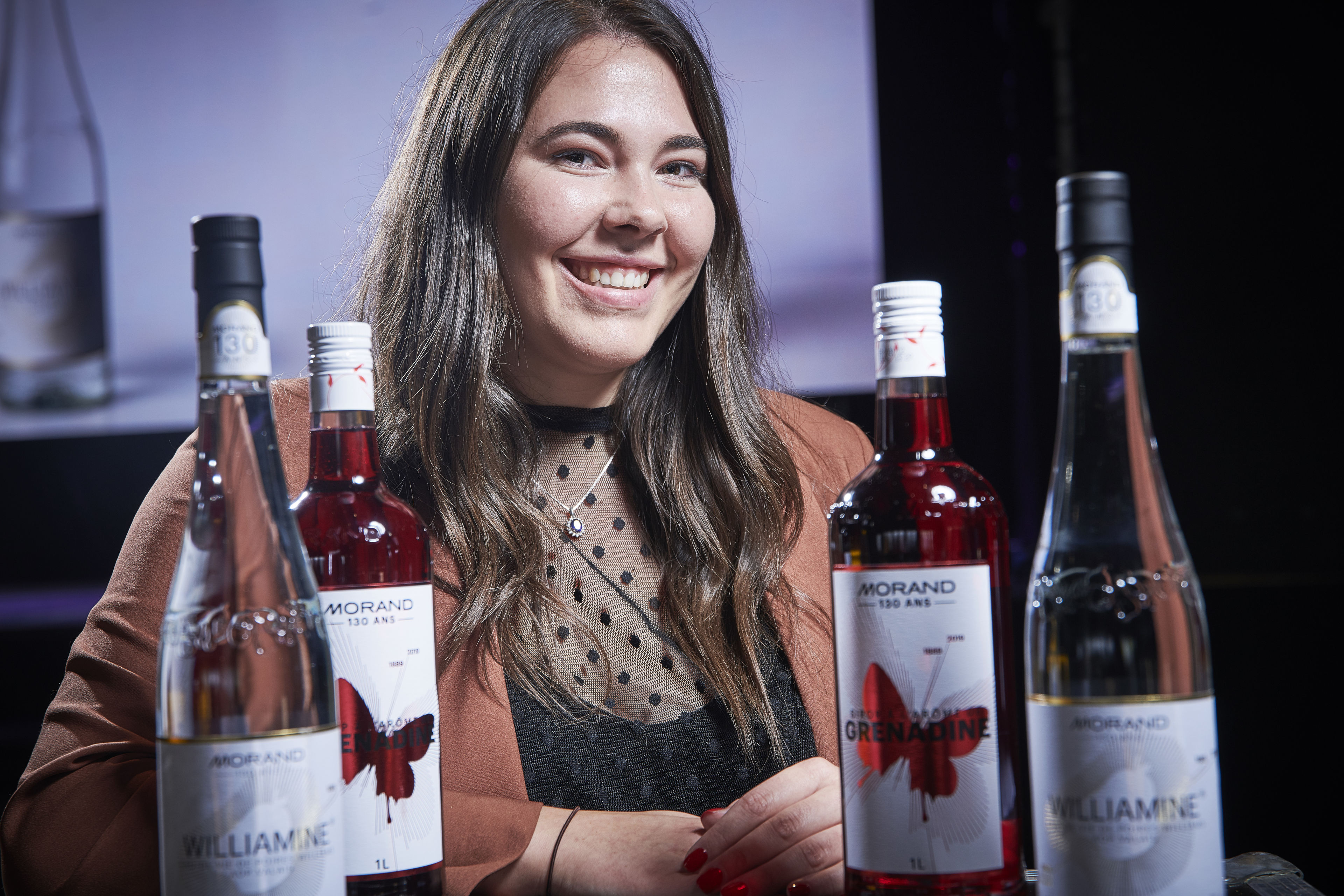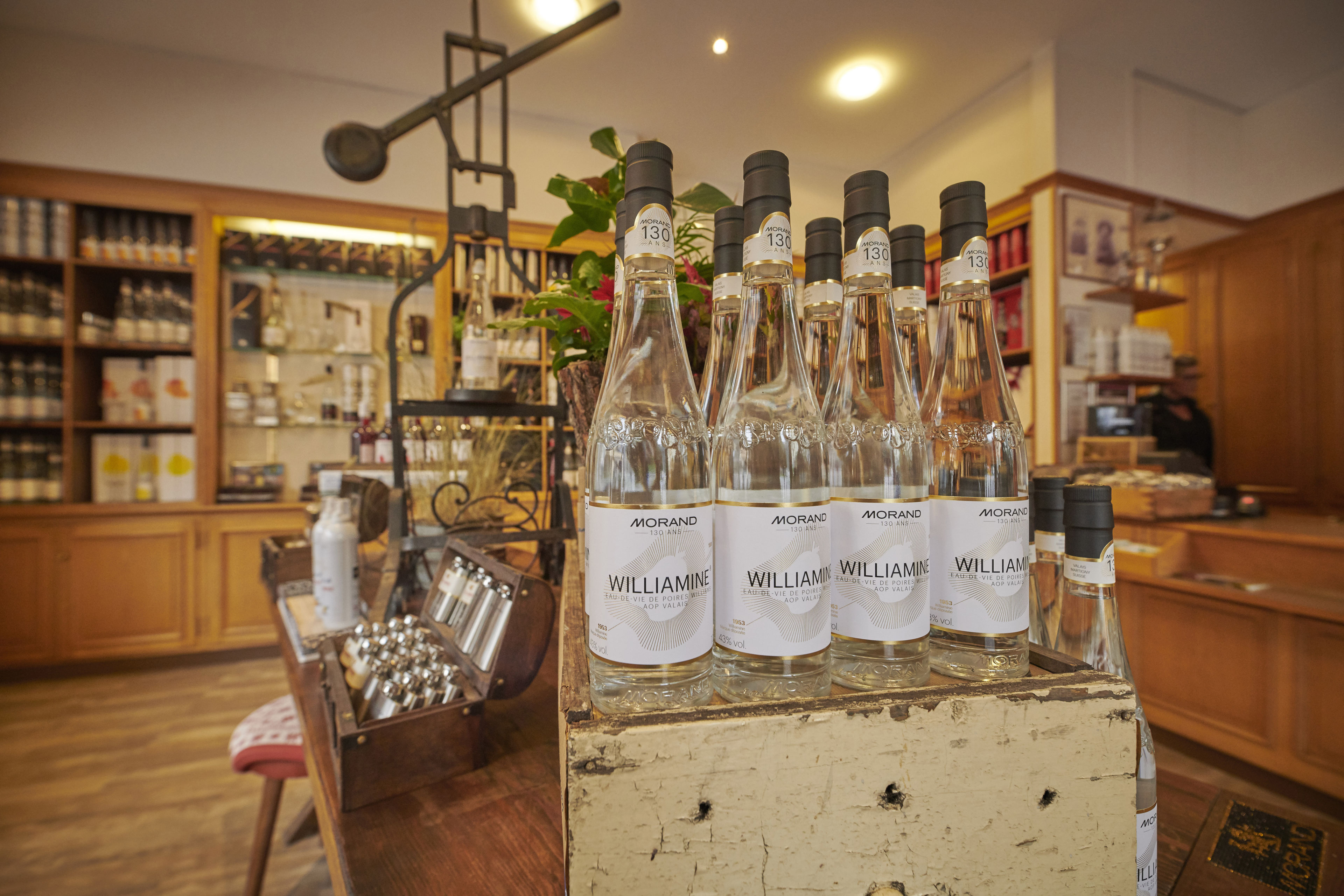From digestif to aperitif
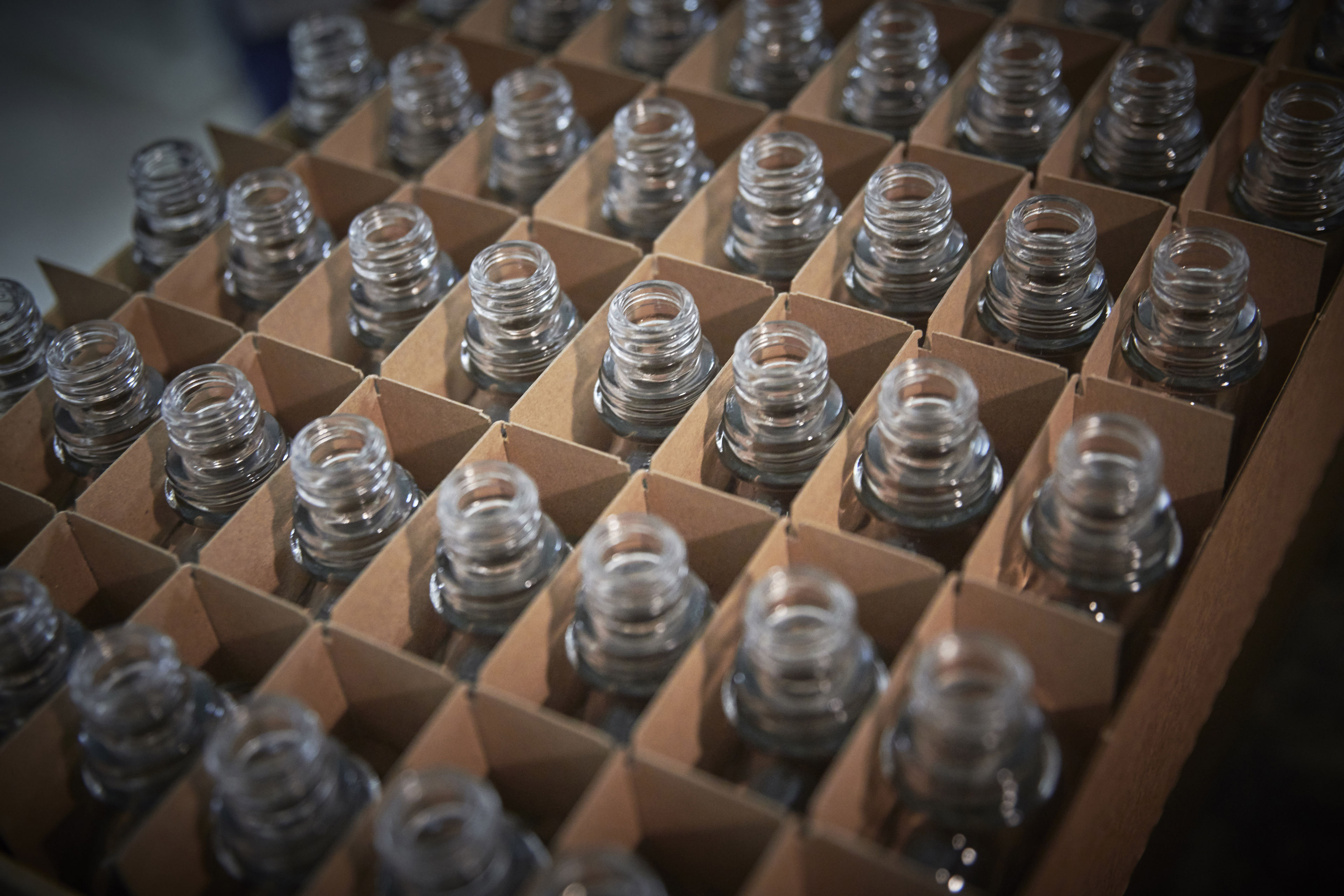
Morand has long been known for its superb spirits; for decades, people throughout Switzerland have served Williamine® or Abricotine AOP to round off a meal. Today, mixologists are using the intense flavours to create refreshing new cocktails and other drinks.
The ritual was the same for generations: after dinner, the host would place liqueur glasses on the table, open the cupboard with the intriguing bottles inside, and ask guests: “A digestif”? As a result, anyone over the age of 40 in Switzerland is familiar with the logo and labels of the Morand distillery and knows that Williamine® only ever comes in Morand bottles. That has long been the case – and remains true to this day. Because in the 130-year history of the company, it has benefited not only from talented distillers but also business visionaries who secured legal protection for the Williamine® brand.
This unique selling point was not so easy to achieve. Louis Morand, the founder of the distillery, selected only the finest produce to make his spirits. This was not standard practice: back in those days, second-class fruit was frequently used for distillation – as is still often the case today. In Martigny, however, only the finest quality was good enough to prepare the mash needed for distillation. “My great-grandfather always followed this principle,” says Bruno Vocat, “and we continue to do the same today.” A member of the fourth generation of the family to work at the distillery, Bruno is now responsible for production.
The very first product that Bruno’s forefather made was the Liqueur du Grand St-Bernard, using herbs and following a recipe he obtained direct from the historical hospice at the Great St Bernard Pass. In contrast to other distilleries at the time, Louis Morand used the plants and fruit themselves rather than essences or extracts. He won prizes at the world exhibitions of the day and was highly successful – which encouraged him to produce other liqueurs. He also made fruit syrups, which soon won loyal customers throughout French-speaking Switzerland. Today there are more than 30 varieties, including two made from Valais apricots and pears.
The second generation, under André Morand, expanded the business to become a distributor for other brands such as Beauregard and Cardinal beers, Moët champagne and the up-and-coming drink Coca-Cola. It was also André Morand who began to produce spirits from Williams pears in the 1940s. He bought the name from a distillery in Geneva, registered it as a brand in Switzerland in 1953 and internationally three years later. The spirit was highly popular, and André realised the company needed to secure its supply of ingredients. The fruit growers of Valais obliged, planted trees and created a new branch of the economy – so that today Valais provides 72 per cent of the entire Swiss harvest of Williams pears. Since then, Morand has processed around 150 million kilos of the fruit.
The range was still incomplete, however, because it did not include the emblematic fruit of Valais: the apricot. Louis Morand, from the third generation of the family, fought for customers to be able to identify easily the outstanding products from the region. He was instrumental in securing the AOP (Appellation d’Origine Protégée) label for the typical apricot of Valais, the Luizet, thereby ensuring that Abricotine distilled from the fruit also bears the AOP label. “Today, we have our own orchards of Luizet apricots in Saxon,” Bruno Vocat says.
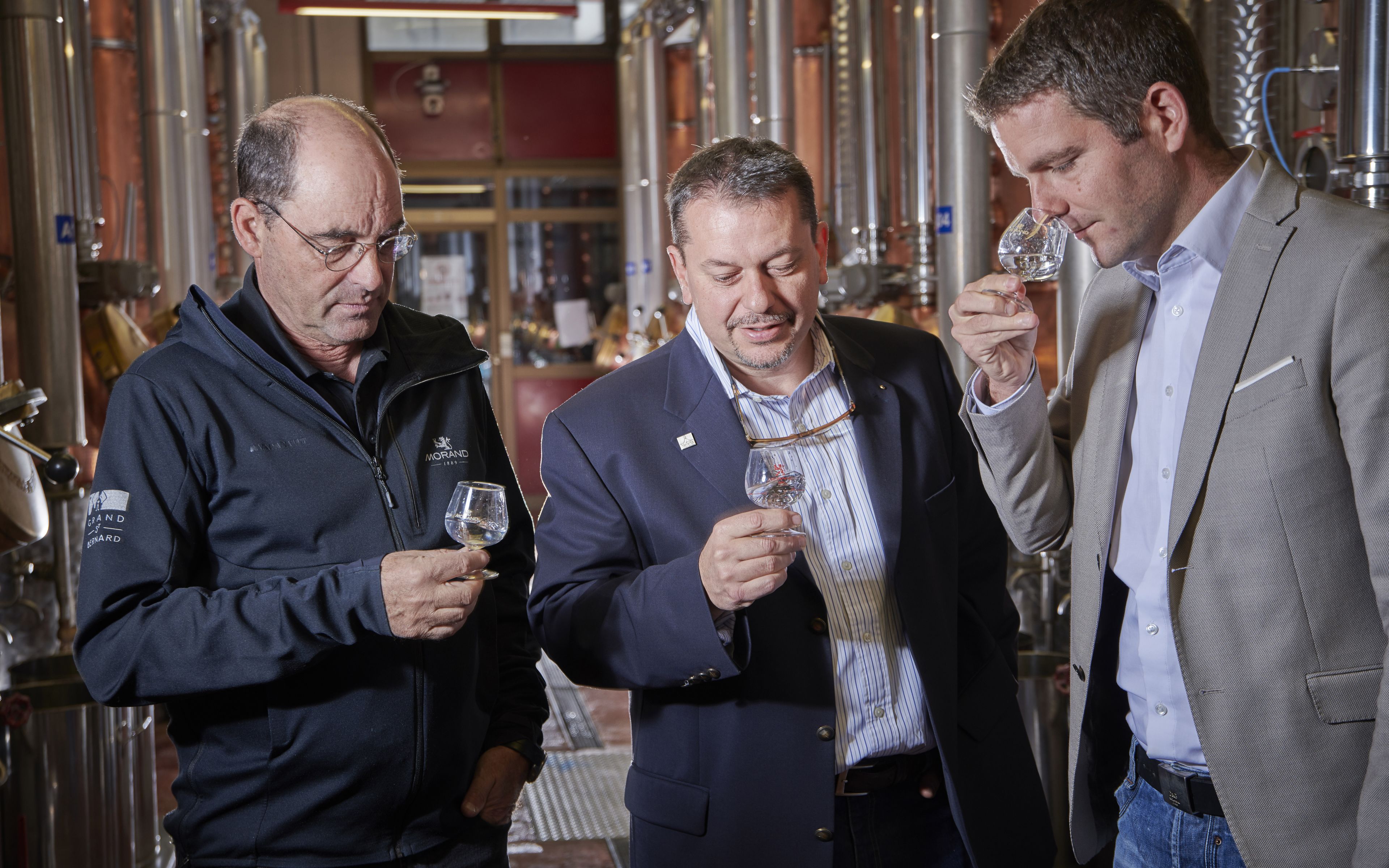
Yet even all this work would not be enough to guarantee the future of a successful company. In 2004, Switzerland reduced the legal blood alcohol limit for drivers to 0.05%. “Ever since, we have been a little afraid of the police,” Bruno says with a smile. Certainly, people started drinking less – but not so much at the beginning of the evening as at the end, before driving back home. “Fruit spirits have often been thought of just as a digestif,” says Fabrice Haenni, director of Morand. “Today, gin and cocktails are really popular as an aperitif. And our top-quality spirits made from apricots, pears, raspberries or Mirabelle plums, and our fine syrups, are perfect for mixing fresh, modern drinks.” Morand has also launched its Swiss Cocktails Service and Swiss Rock: “We come to events as cocktail caterer and run the bar,” Fabrice says. “We follow the wishes of clients, and mix drinks according to themes or colours they have chosen.” Morand has also now added fashionable gin to its range. The distillery is offering Alata, developed by an enthusiast from Valais, and also a gin with a touch of yuzu by Niels Rodin. The fruit spirits, too, are enjoying new incarnations: the “Coeur” series, for example, with an especially high fruit content, the “Douce de” range, with a lower alcohol level, and the vegan “Mousses”, suitable as a topping for coffee or to add to a cocktail.
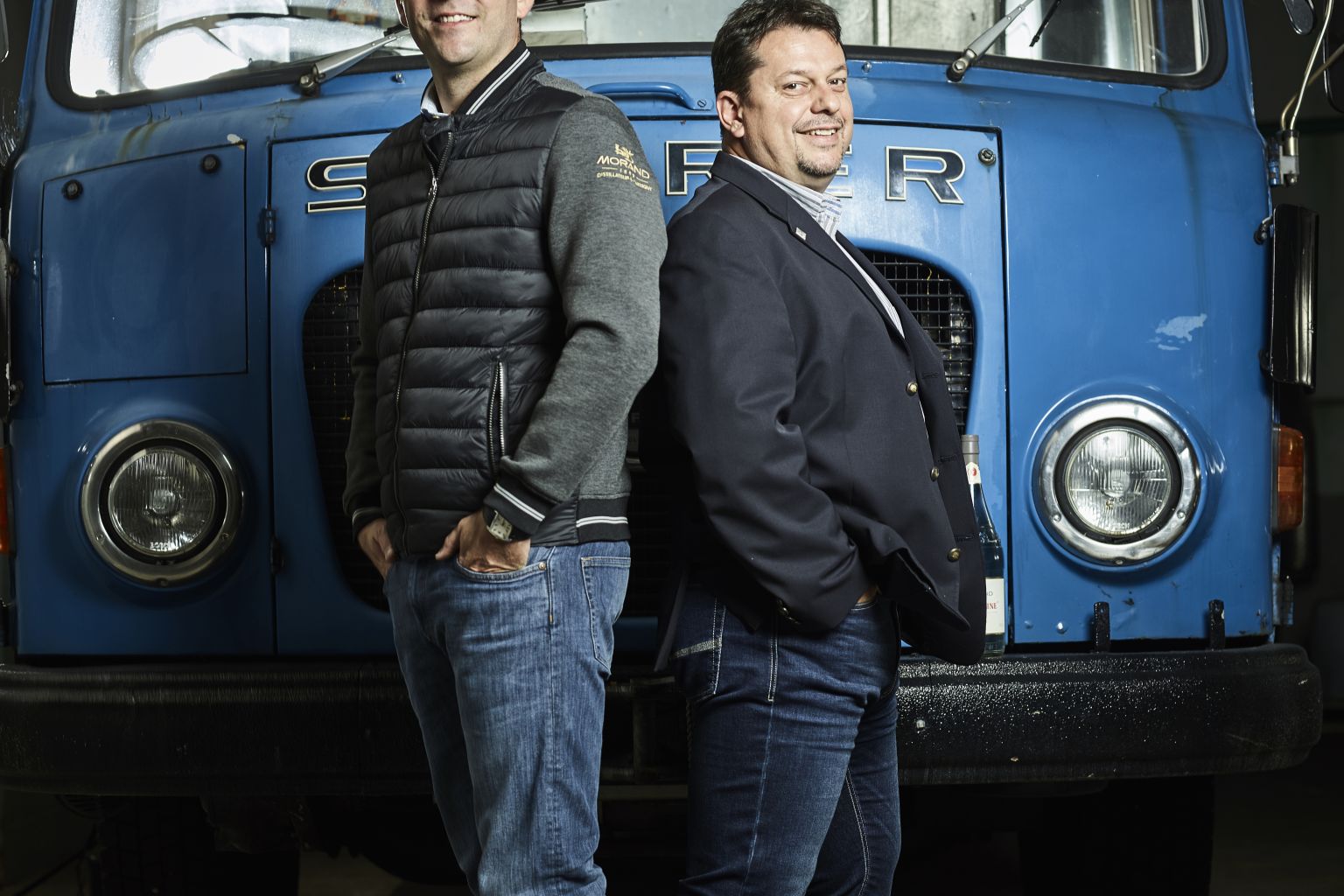
And then there are the pastilles, teas and herbs of the Grand St-Bernard brand, made with organic herbs and awarded the Valais brand label. Morand bought the family business in 2015; Fabrice Haenni, meanwhile, who grew up with his parents in the herb business, gave up his career as a banker to join Morand as director. “I couldn’t have dreamed of a finer job,” he says. And so, with three great-grandchildren of the founder, he guides the family business towards a promising future.
The fruit of a summer
Next story
